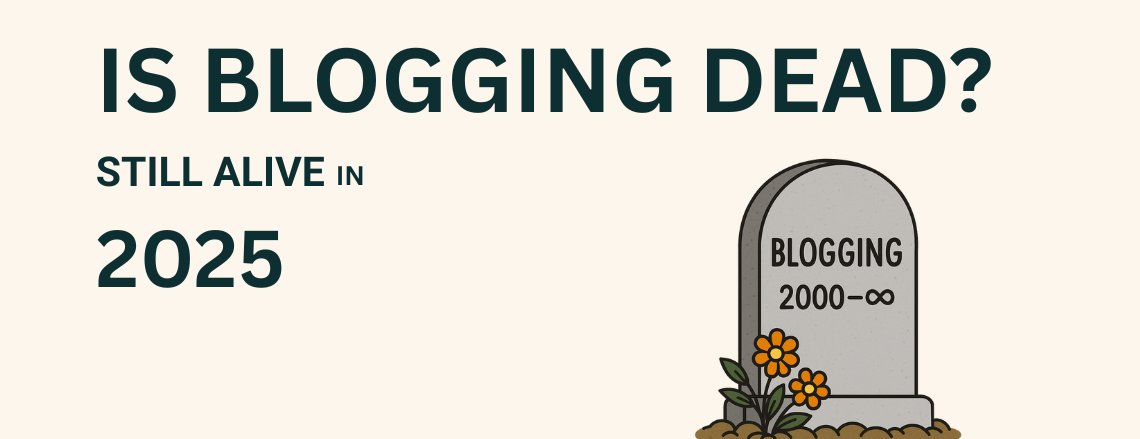Do Blogs Still Matter in 2025? Spoiler: Yes


“Is blogging dead?” It’s a question that comes up every few months in digital marketing circles.
With social media feeds, AI chatbots, and endless video content, it’s easy to think blogs have lost their shine.
But here’s the truth: in 2025, blogs still matter, and they might be more important than ever.
Why People Think Blogs Are Dead
Let’s face it: attention spans are short, TikTok is addictive, and AI can answer questions in seconds. No wonder many business owners wonder if writing articles is worth the time. The myth of “blogging is dead” usually comes from comparing it to newer platforms, but the reality is that blogs haven’t disappeared. They’ve evolved.
Today, blogs aren’t just online diaries or keyword-stuffed walls of text. They’re strategic, SEO-friendly articles designed to answer customer questions, showcase expertise, and build visibility online.
Why Blogs Still Matter for SEO
Here’s the thing: Google loves fresh, structured content. Blogs give your website new material to index, which tells search engines your business is active and relevant. Every time you publish a well-written article, you’re giving yourself another opportunity to appear in search results.
Think of it this way: without blogs, your website is like a storefront with the same window display all year long. With articles, you’re swapping out the display, keeping things fresh, and drawing new eyes to your business.
And it’s not just about Google. Customers trust businesses that provide helpful content. When your site answers their questions, you earn their click and their confidence.
Blogs Build Authority and Trust
A modern blog isn’t about churning out posts just to have something new. It’s about proving you know your stuff.
- A restaurant can publish an article about seasonal menus or pairing tips.
- An attorney can explain common legal questions in plain English.
- A real estate agent can provide market updates or offer advice to first-time buyers.
These blogs aren’t just filler. They’re proof that you’re an expert in your field, giving potential customers a reason to trust you over the competition.
Blogs Fuel Everything Else
Here’s a secret: blogs don’t just live on your website. They’re the starting point for all kinds of marketing content.
- That “How to” article? Chop it up into Instagram tips.
- That thought leadership blog? Turn it into a LinkedIn post.
- That client case study? Share it as part of your email newsletter.
One blog can power weeks of content across multiple channels. If you’ve ever sat down to write a social post and drawn a blank, your blog is the answer.
The Blog Isn’t Dead, It’s Smarter
The businesses that say “blogging doesn’t work” are usually the ones still writing like it’s 2012: keyword stuffing, no formatting, or publishing fluff no one wants to read.
In 2025, effective blogs look different:
- Quality over quantity (better to publish one great article a month than four weak ones).
- Clear structure with headings, visuals, and calls to action.
- SEO-friendly, but written for humans first.
- Connected to broader marketing objectives, including brand awareness, lead generation, and enhanced visibility.
When blogs are done right, they’re not old-fashioned. They’re a competitive edge.
➝ If you want more information on blog/article formatting, check out our guide to using H1, H2, and H3 headings!
Our Final Thoughts
So, do blogs still matter in 2025? Absolutely. They drive SEO, build trust, and give your marketing content a foundation that lasts. While platforms and trends will keep changing, the blog remains one of the most innovative tools in your digital toolkit.
At Stark Create, we help businesses refresh outdated content, create new articles, and connect their content strategy to real results. Let’s make your blog matter.

